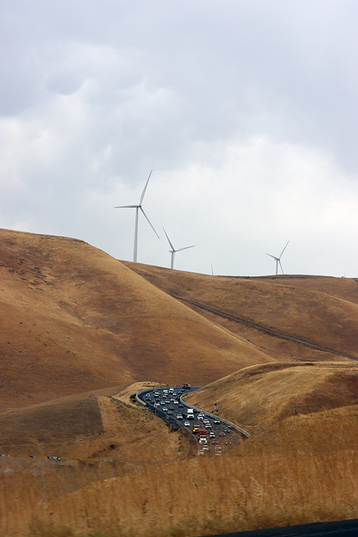The US Senate has passed a major bill aimed at slowing climate change, lowering drug prices, and slightly raising corporate taxes.
The $430 billion Inflation Reduction Act is a significant step in the fight against climate change, but critics note that it includes provisions supporting further fossil fuel development, and comes alongside a bill that supports a gas pipeline.
Tax changes mean that the legislation will bring in $790 billion, according to the Congressional Budget Office, leading to an overall deficit reduction of $305bn.
The CRO also confirmed the bill meets the special reconciliation instructions laid out in a budget resolution passed last year, which means Democrats can pass it with a simple majority vote.
Think tank Energy Innovation: Policy and Technology believes that the IRA could reduce US greenhouse gas emissions to 37-41 percent below 2005 levels, and increase GDP by 0.84-0.88 percent in 2030. Think tank Rhodium Group put reductions at 31-44 percent.
Both are below the Biden Administration's aim of a 50 percent reduction, a science-based target aimed at minimizing the worst of climate change's impact on the planet and people.
The bill would aim to reduce greenhouse gas emissions by electrifying industries and products that run on fossil fuel, while generating more renewable and clean energy sources.
At the same time, it will raise roughly $313 billion from imposing a 15 percent minimum tax on corporate book income (with several caveats), $322 billion for reforms to reduce prescription drug costs, $124 billion ($204 billion gross) from reducing the tax gap through stronger Internal Revenue Service (IRS) enforcement, $13 billion from closing the carried interest loophole, and $18 billion from fees on methane emissions, Superfund cleanup sites, and a permanent extension of the higher tax rate for the Black Lung Disability Trust Fund.
It did not include a $35 cap on insulin prices, which fell outside of reconciliation rules and was voted down by Republicans.
Electrification
The bill would give $7,500 in tax credits for new electric vehicles and $4,000 for used ones. Tax credits would also be available for climate-friendly home renovations, including heat pumps and solar panels.
$6 billion would go reducing emissions in polluting industries like cement, chemical, and steel plants.
$3bn will go to the US Postal Service to buy zero-emission vehicles, with the service the second largest federal emitter, after the US military.
Generation
$30 billion in grants and tax credits for states and electric utilities will support the deployment of clean energy and energy storage. Along with solar, wind, and batteries, that $30bn also covers hydrogen, carbon capture technology, and nuclear power facility life extension.
Another $60bn will go to supporting the manufacturing of clean energy systems like solar panels and wind turbines, as well as electric vehicles and heat pumps.
Reduction
$60bn is set to go to supporting environmental justice initiatives, including reducing air pollution at ports, improving US public transport in underserved communities, and fining companies for leaking methane.
$20 billion is to be spent on climate-smart agricultural practices, with 11 percent of US greenhouse gas emissions coming from the agricultural sector.
Grants and credits will go to biofuels, with a specific section on jet fuel, as well as wider industries - including, potentially, data centers, which have begun to use it as an alternative to diesel.
Protection
Some $2.6bn will go to protecting coastal communities and habitats, $4bn to the US drought, and $5bn to making forests more resilient to wildfire.
Funding
$27 billion will go to a green bank that aims to support emissions-cutting public-private partnerships, $8bn of which is for disadvantaged communities.
Another $2bn goes to basic research at national laboratories, some of which will go to alternative energy sources like fusion.
The fossil flaw
Despite being pitched as a bill supporting climate change reduction, it includes several sections supporting the expansion of fossil fuel infrastructure, helping speed up environmental collapse.
Approving renewable energy development on federal lands is tied to auctioning oil and gas leases. The Department of the Interior is also required to sell leases for oil and gas drilling in the Gulf of Mexico and off the coast of Alaska.
To win over Senator Joe Manchin of West Virginia, a coal baron who blocked more expansive bills and delayed progress on climate change by years, Senate Majority Leader Chuck Schumer of New York promised him a separate bill to speed up the permitting process for new energy projects.
That would help a natural gas pipeline in West Virginia be approved, and leave the door open to more fossil fuel projects being passed with a weaker environmental review process. However, it could also help renewable energy projects and transmission lines pass faster.
What's next
The bill passed the Senate on party lines, with Vice President Kamala Harris casting the tie-breaking ballot.
The legislation now heads to the House, where it is expected to be reviewed by the end of the week during a break in the summer recess. It is currently expected to pass. It then goes to President Biden to be signed into law.





